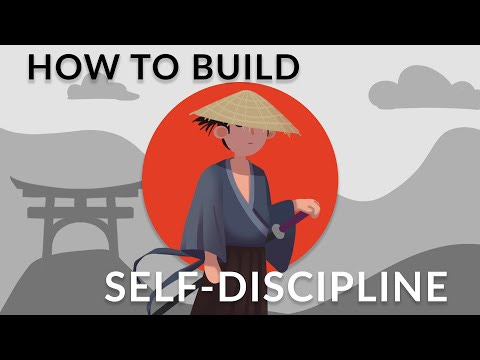Freedom in Thought
A YouTube Channel for Practical Philosophy
Do you want to know yourself better? Do you want to learn how to think clearly, live simply, and achieve your goals? Do you want to explore the ideas of some of the greatest thinkers in history, such as Marcus Aurelius, Carl Jung, Friedrich Nietzsche, and Buddha?
If you answered yes to any of these questions, then you might want to check out Freedom in Thought, a YouTube channel that produces video essays on practical philosophy. Freedom in Thought is run by Justin Deol, a self-taught philosopher who aims to help people improve their lives by applying philosophical principles to everyday situations.
What is Practical Philosophy?
Practical philosophy is the branch of philosophy that deals with how to live well and act wisely. It is not concerned with abstract theories or metaphysical speculations, but rather with concrete problems and solutions that affect our happiness and well-being.
Practical philosophy can help us answer questions such as:
How can I overcome fear, anxiety, and stress?
How can I find meaning and purpose in my life?
How can I develop self-discipline and self-confidence?
How can I deal with uncertainty and change?
How can I communicate effectively and respectfully with others?
How can I cope with failure and criticism?
How can I balance my personal and professional life?
How can I make better decisions and avoid biases?
What Can You Learn from Freedom In Thought?
Freedom in Thought covers a wide range of topics and themes related to practical philosophy, such as:
Stoicism: a school of philosophy that teaches how to live in harmony with nature and reason, and how to control our emotions and desires.
Existentialism: a movement of philosophy that emphasizes the freedom and responsibility of human beings, and the importance of creating our values and meaning.
Buddhism: a religion and philosophy that teaches how to achieve enlightenment and liberation from suffering, by following the noble eightfold path of wisdom, morality, and meditation.
Psychology: a science and discipline that studies the mind and behavior, and how they are influenced by biological, social, and environmental factors.
Self-improvement: a process and practice of enhancing our skills, abilities, and qualities, and achieving our personal and professional goals.
Freedom in Thought also features the biographies and works of some of the most influential and inspiring philosophers in history, such as:
Marcus Aurelius: a Roman emperor and stoic philosopher who wrote the Meditations, a collection of personal reflections and advice on how to live a virtuous and tranquil life.
Carl Jung: a Swiss psychiatrist and psychotherapist who founded analytical psychology, a school of psychology that explores the unconscious mind and the archetypes, symbols, and myths that shape our personality and culture.
Friedrich Nietzsche: a German philosopher and cultural critic who challenged the traditional values and morals of Western civilization, and proposed the concept of the Übermensch, the ideal human being who creates his values and meaning.
Buddha: a spiritual teacher and founder of Buddhism, who attained enlightenment and taught the four noble truths and the noble eightfold path, the core teachings of Buddhism that lead to the cessation of suffering and the attainment of nirvana.
How is Freedom in Thought Different from Similar Channels?
Freedom in Thought is not just another educational YouTube channel that summarizes and explains philosophical concepts and theories. It is a channel that aims to make philosophy relevant and applicable to our modern lives inspire us to think for ourselves and to challenge our assumptions and beliefs.
Freedom in Thought does this by:
Using clear and simple language, without jargon or technical terms, to make philosophy accessible and understandable to everyone.
Providing practical examples and scenarios, from personal stories to current events, to illustrate how philosophy can help us deal with real-life situations and problems.
Encouraging critical thinking and self-reflection, by asking questions and inviting feedback, to stimulate our curiosity and creativity, and foster a community of learners and thinkers.
Offering actionable tips and strategies, from habits to exercises, to help us implement and practice what we learn, and to measure and improve our progress and results.
What Can Entrepreneurs Learn from Freedom in Thought?
Entrepreneurs are people who create, innovate, and solve problems. They are also people who face many challenges and uncertainties, such as:
How to find and pursue their passion and vision?
How to overcome fear, doubt, and rejection?
How to manage their time, energy, and resources?
How to deal with competition, failure, and criticism?
How to lead, motivate, and collaborate with others?
How to adapt, learn, and grow?
Freedom in Thought can help entrepreneurs learn from the wisdom and experience of some of the greatest philosophers in history, who also faced and overcame many difficulties and obstacles in their lives. By watching and applying the lessons from Freedom in Thought, entrepreneurs can:
Develop a clear and strong sense of purpose and direction, by finding and following their values and meaning, and by aligning their actions with their goals.
Cultivate a calm and resilient mindset, by controlling their emotions and desires, and by accepting and embracing the reality and uncertainty of life.
Enhance their skills and abilities, by learning new things and expanding their knowledge, and by practicing and improving their performance.
Build positive and productive relationships, by communicating effectively and respectfully, and by cooperating and supporting others.
Achieve personal and professional success, by creating value and solving problems, and by making a positive impact and difference in the world.
Check out the channel here
Thank you for reading. I hope you found it informative and entertaining. If you have any questions, comments, or feedback, feel free to leave them below. I’d love to hear from you.
YouTube Corner
Channels of the week:





